Your blood is that of the gods.
Not directly, of course; though you idolised your parents when...
Not directly, of course; though you idolised your parents when...
| User | Total |
|---|---|
| Maugan Ra | 5 |
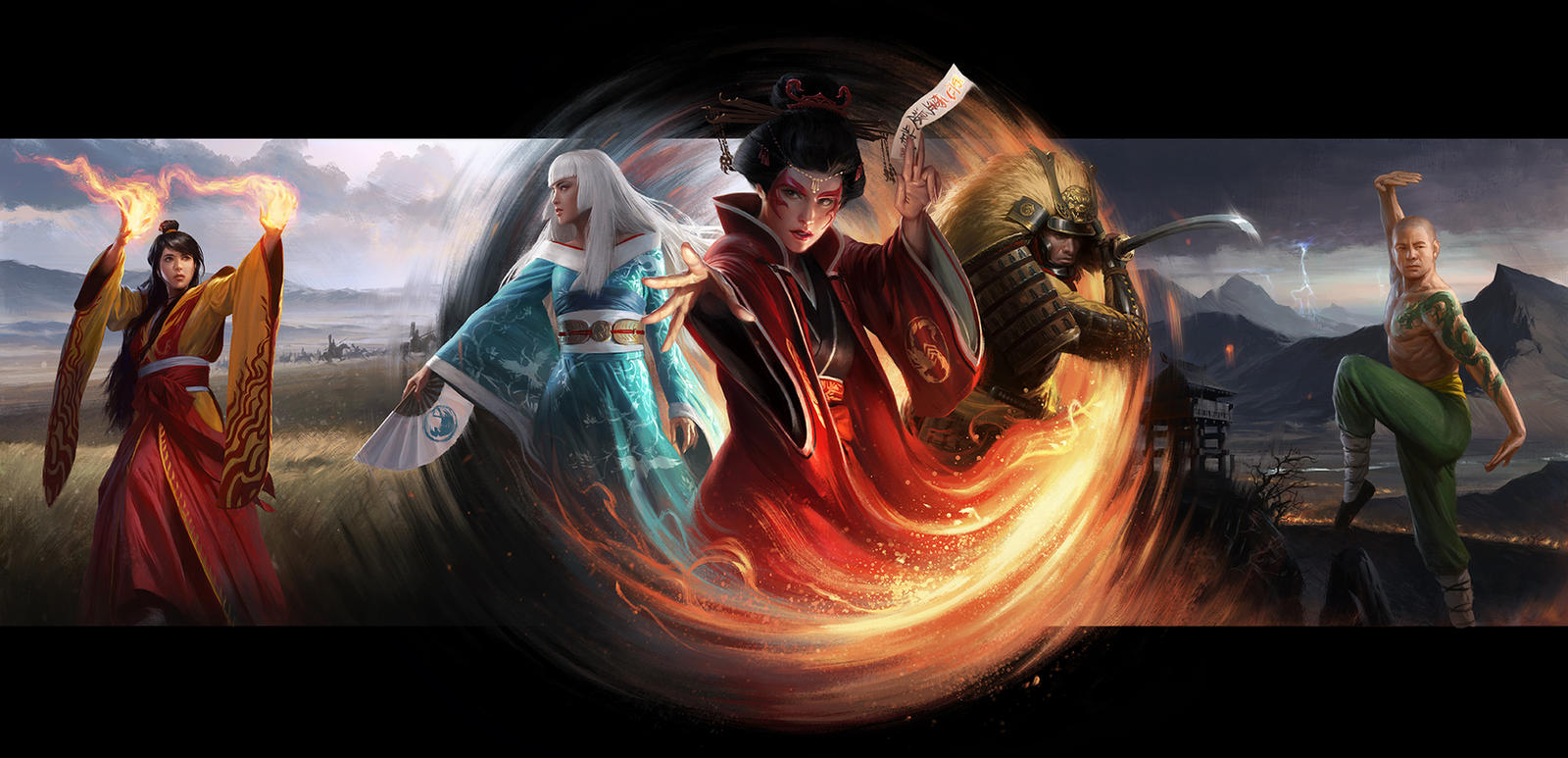

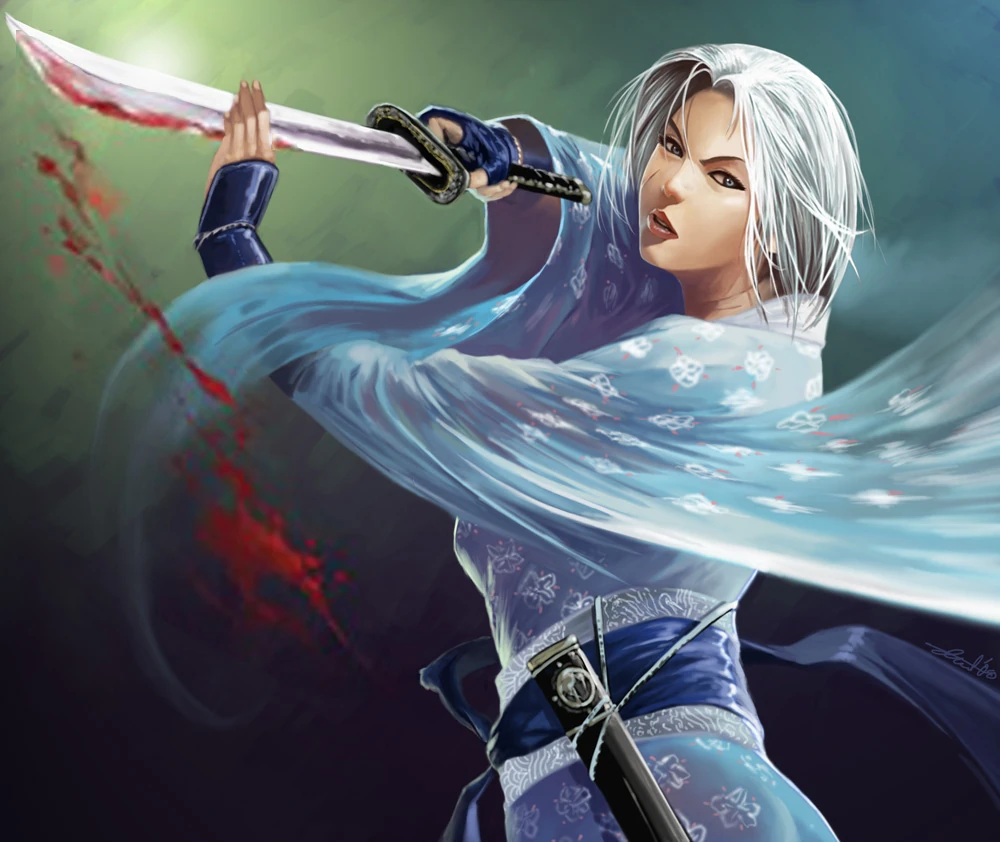
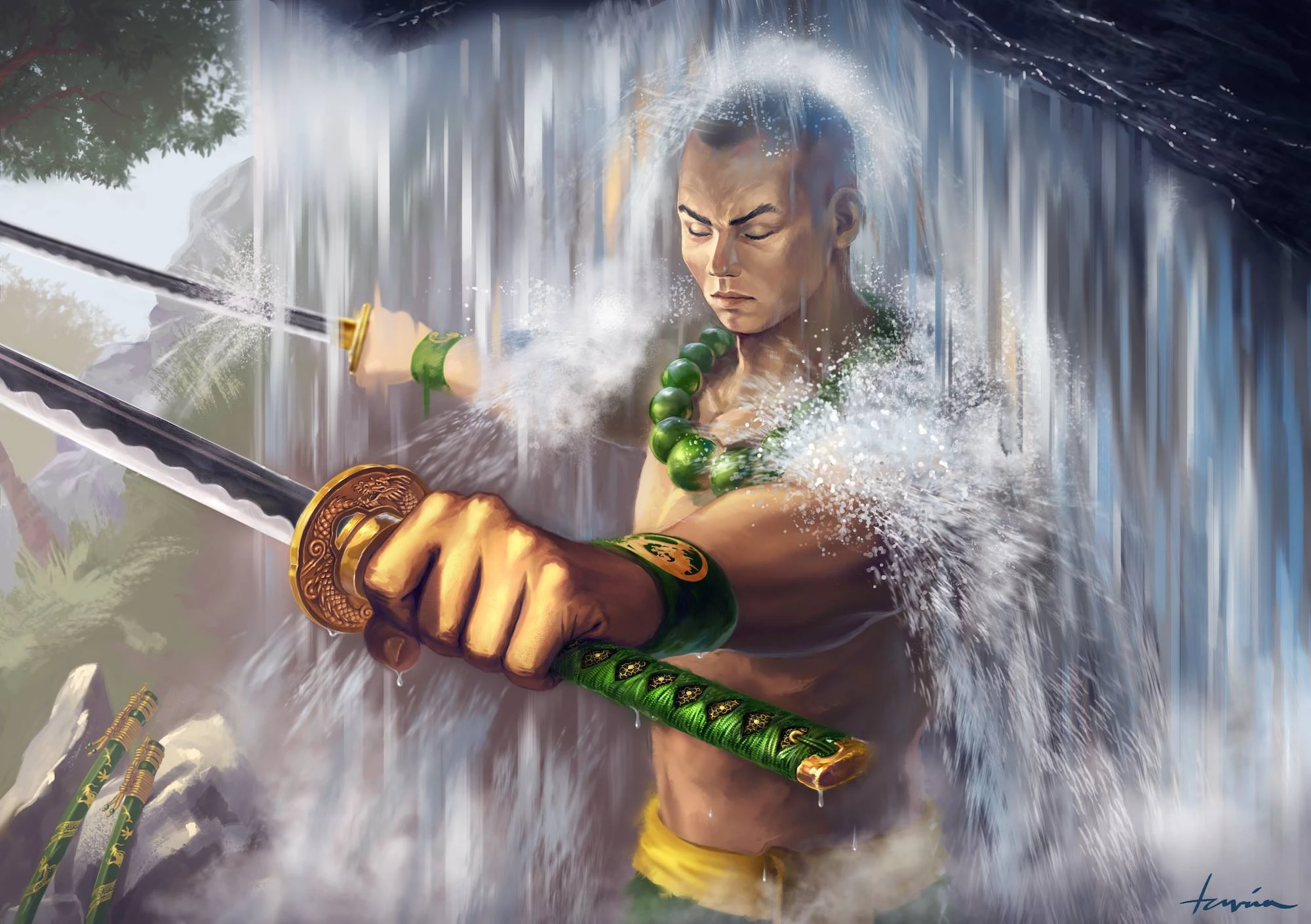

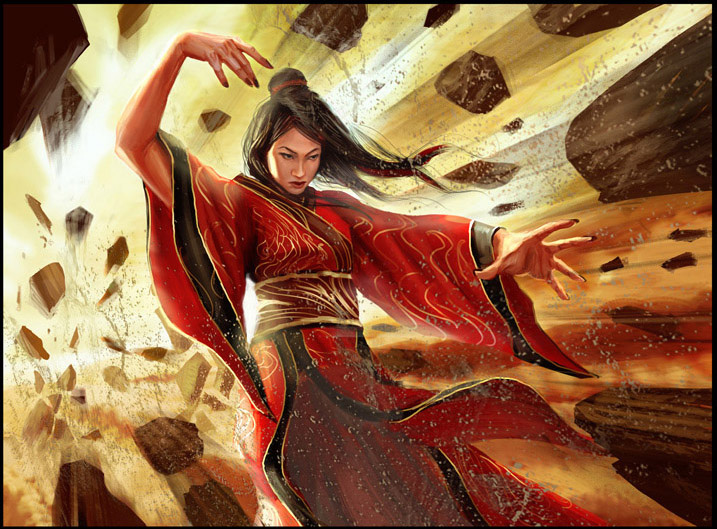
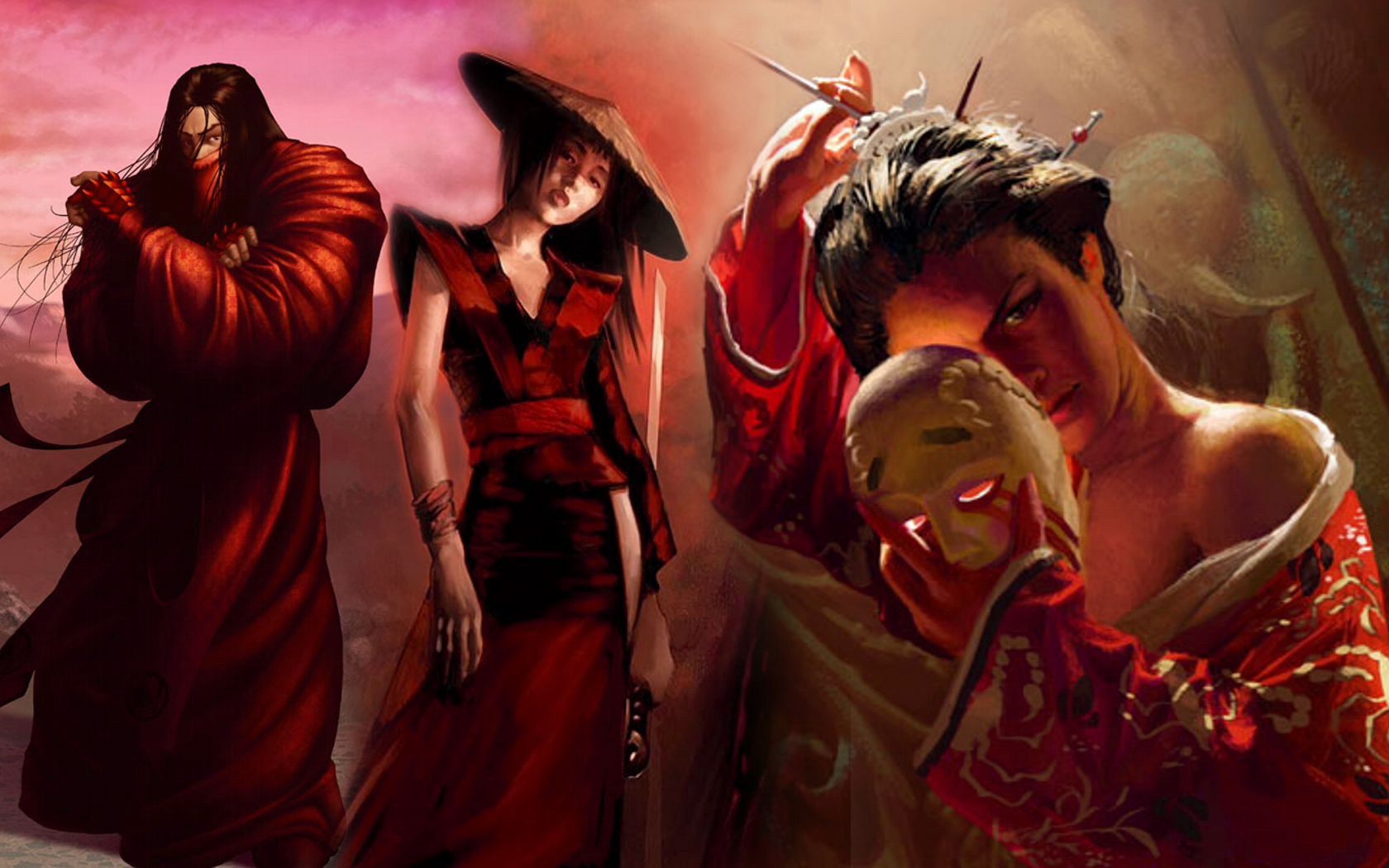

Article: Choose which Clan and Family you come from, under the following format:
[ ] Clan
Because of the wide variety of options available to you, you may vote for a total of three options. I will compare the vote for the Clan overall, and once the winning Clan has been determined, proceed to judge the winning family within it.
- [ ] Family
Your character hails from the ruling line of their family, and as such will be trained in their traditional school: if you are a Matsu, you will be one of the Berserkers, while an Isawa character will be a shugenja. The quest will begin with you attending the Topaz Championship, by which your character will officially graduate and become a samurai - this will also serve as a 'tutorial' arc. Following that, you will be plunged into the setting of Rokugan as one of the very few people in it with the power to really make a large-scale difference… and the appropriate responsibilities as well.
The mechanics for this quest will be taken from the 5th edition of the Legend of the Five Rings rpg, with appropriate modifications to make it work more smoothly in a quest-like format.
As an example, your vote should look something like this:
[x] Lion
- [x] Akodo
[x] Lion
- [x] Matsu
[x] Dragon
- [x] Mirumoto

Article: What is your gender?
[ ] Male
[ ] Female
Among the Moto, both sexes are considered equal, and any discrimination happens along familial or cultural lines. In the wider Empire, it varies significantly, with each Clan and Family having its own attitude towards the proper place and role of men and women.
What is your personal name?
[ ] Write in
The naming traditions of the Moto are eclectic, and not entirely in line with the traditions of wider Rokugan. For real world inspirations, you can look at Hindi, Korean and Arabic names.
Article: How did you stand out at the dojo?
[ ] Passion. Your energy and enthusiasm were second to none, and your relentless drive to succeed inspired the minds and bodies of your classmates to push on to greater heights than any of you could have reached alone.
[ ] Grace. It is the way of the Moto to be as the wind that sweeps across the desert, and you exemplified this trait above all others. You were eloquent and poised, ever reading the truth of the situation and turning it effortlessly to your advantage.
[ ] Adaptability. The sensei were fond of throwing strange problems at you, presenting unique challenges that demanded unconventional solutions, and you made your name by overcoming each in turn. You can roll with the punches in a way that others can only dream of.
[ ] Tenacity. Above all else, you were reliable, a voice of calm and a pillar of strength that your fellow studies came to count on in times of great stress or pressure. Your sensei appointed you as an assistant instructor more than once, knowing they could rely on your judgement.
[ ] Insight. The study of the blade is the study of the world, and vice versa. You demonstrated an understanding of such truths far beyond that of most students, and your sensei took note of your almost-mystical insights into a wide variety of skills and studies.
Article: Not every samurai lives their Clan's creed, and many diverge significantly on matters of politics, philosophy or more personal matters. Here, at the end of your training, answer me this; how close do you cleave to the orthodoxy of the Unicorn Clan? How traditional are you?
[ ] Firm Believer. You are a Unicorn to the bone, and a Moto as well. You have not strayed from the path of your ancestors, no matter the temptations set down before you, and your family has made its approval of your diligence well known.
[ ] Unorthodox. You have split from the traditional philosophy of the Unicorn and the Moto in some notable way, and have a reputation as a result of doing so. Your divergence does not threaten your standing, at least not yet, but it does create some distance between you and your more traditional peers.
Note: This choice will have a knock-on impact on later votes as well as an immediate stat-based effect.
The Code of Bushido said:There are seven tenets that make up the Way of the Warrior, and it is in how closely they adhere to these tenets that your character will be most readily judged by their peers and superiors. Perfection is not expected, and indeed may be impossible to truly achieve, but a good-faith effort to adhere to as many of the principles at any one time as you can is expected.
The Unicorn Clan traditionally places more of an emphasis on the principle of Compassion, their nomadic past giving them strong inclinations towards the basic ideas of equal worth among all people. They tend not to emphasise Courtesy to the same degree, believing that the truth of a man's heart is a better guide to righteous action than the stifling constraints of formal etiquette.
Compassion - Through intense training, the samurai becomes quick and strong. They are not as other people. They develop a power that must be used for the good of all. They have compassion. They help their fellows at every opportunity. If an opportunity does not arise, they go out of their way to find one.
Courage - Rise up above the masses of people who are afraid to act. A samurai must have heroic courage. It is absolutely risky. It is dangerous. Only in acceptance of one's death may a samurai live their life completely, fully, wonderfully. Courage is not blind; it is intelligent and strong. Replace fear with respect and caution.
Courtesy - Samurai have no reason to be cruel. They do not need to prove their strength. A samurai is courteous even to their enemies. Without this outward show of respect, we are nothing more than animals. A samurai is not only respected for their strength in battle, but also for their dealings with others. The true inner strength of a samurai becomes apparent during difficult times.
Duty/Loyalty - For a samurai, having done something or said something, they know that they now own that thing. They are responsible for it and all the consequences that follow. A samurai is intensely loyal to those in their care. To those they are responsible for, they are fiercely true.
Honour - A true samurai has only one judge of their honour, and that is themself. Decisions you make and how those decisions are carried out are a reflection of who you truly are. You cannot hide from yourself.
Righteousness - Be acutely honest throughout your dealings with all people. Believe in justice, not from other people, but from yourself. A true samurai knows in their heart that there are no shades of grey in the question of honesty and justice. There is only right and wrong.
Sincerity - When a samurai has said they will perform an action, it is as good as done. Nothing will stop them from completing their deed. They do not have to 'give their word', nor do they have to 'promise'. The action of speaking alone has set the act in motion. Speaking and doing are the same thing.
Article: How honourable are you?
[ ] True of Heart. Your belief, your drive to act at all times in an honorable way, is a source of personal strength and often garners you the respect and admiration of others.
[ ] Free of Spirit. Though you still think of yourself as honorable and true, it is fair to say that you disagree significantly with one of the seven precepts of Bushido, or at least with how it is commonly practiced.
Article: What deed or quality are you most famous for? This will be reflected on your character sheet by a distinction - in addition to some general narrative benefits, you will be able to reroll any two unsuccessful dice in a test where your distinction seems like it should reasonably provide some kind of an advantage.
[ ] Famously Reliable. On a training expedition into the Burning Sands, your group was waylaid by a party of slavers. Your sensei believed your oath to recover the kidnapped students a foolish boast. When you returned three weeks later with a dozen children and three severed heads, they were proven incorrect. Your peers assume that you will always keep your word, no matter how impossible such a thing might seem.
[ ] Jurojin's Blessing. Plague is a terrible foe of all who live in Rokugan. When sickness took the village of Red Leaf, you voluntarily stayed within the quarantined area, ministering to the sick as best you could. For some reason, the disease never touched you, and your steadfast example kept the morale of the villagers high even as they tended to their ailing relatives. Your health remains robust to this day, and others know of your compassion.
[ ] Large Stature. Your bloodline is not entirely that of Rokugan, and in you this has manifested in a frankly ridiculous growth rate. You tower head and shoulders over even the tallest of your peers, and when your horse tripped and broke a leg, you carried the poor thing two and a half miles to the nearest healer.
Article: Which of the following qualities holds you back in life, or otherwise poses some kind of frequently-occurring obstacle with which you must contend? This is reflected on your sheet by an adversity, which operates in opposition to a distinction; namely, it forces you to reroll two successful dice whenever it comes up in the course of the quest.
[ ] Bluntness - For some reason that doubtless makes sense to everyone else, the samurai of Rokugan are obsessed with never actually speaking their minds. Everything must be veiled in allegory and misdirection, every comment and commitment accompanied by a ready-made excuse to ignore it if desired. You are, quite simply, terrible at such things. No, really, your friends generally have to explain that the fancy looking courtier just insulted you, and then everyone gets upset when you say they smell like horse manure.
[ ] Discomforting Countenance - OK, so you have foreign blood in your veins, and anyone who looks at you can generally deduce as much within a few moments. You can live with that. What you find somewhat harder to tolerate is how everyone immediately starts eyeing you with suspicion or backing away in fear or fingering the nearest piece of jade…
[ ] Whispers of Cruelty. Your mother, Rurame of the Red Banners is… well you love her dearly, but one does not earn a name like that by being nice, and ever since she collected you from your dojo anyone who meets you generally assumes that you are less her daughter and more a slightly smaller copy. Put simply, everyone expects you to have a fetish for dunking people in boiling oil, and they respond appropriately.
Article: Choose one of the following 'Passions'.
[ ] Daredevil. You love the thrill, the rush, of risking life and limb in increasingly dramatic ways. Your fondest memories are of moments when your heart thundered louder than any drum and you pushed yourself to the edge, either to show off to your peers or simply for the love of it.
[ ] Generosity. One thing you will say about traditional Rokugani etiquette, they were onto something when they formalised the whole 'gift-giving' thing. You have a real knack for picking out exactly what someone might love to receive, and it gives you a genuine sense of pleasure to see their eyes light up in response.
[ ] Travel. The wanderlust of your ancestors still burns in your veins, and you find nothing quite so enjoyable as seeing new places, meeting new people and trying new things. Sometimes that means venturing to see foreign lands, sometimes it means asking that cute courtier what the deal is with all these carefully arranged flowers.
Secondly, choose one of the following 'adversities', conditions which immediately afflict you with three points of strife when they come up.
[ ] Claustrophobia. You are a child of the wind, at home on the open steppe, and enclosed environments leave you feeling unsettled and tense by comparison. You can manage it, more or less, but given the choice you will not be happy until you can see the sky.
[ ] Loneliness. There is nothing quite so pleasing to you as a fun night spent in the company of friends and comrades. By extension, you are never more miserable than when duty demands you spend any significant amount of time alone, without something to take your mind off your solitude.
[ ] Superstition. Rokugan is a land of ten thousand spirits, and that which you do not know can most assuredly harm you. Moto Tsume thought he was the equal of the supernatural, and look what happened; he led half your family line into damnation. You maintain a fanatic's adherence to all the rites and rituals necessary to placate the spirits as a result.
Article: You have arrived in Tsuma. Somewhere around here are likely to be your rivals in the upcoming tournament, who you will likely encounter in various capacities before the contests begin, but first you must decide what to do next. Choose one of the options below.
[ ] Find a temple. It is said that somewhere near here is the hill where the Eight Kami first held their contest of arms, through which they determined who would rule over all of Rokugan. There is doubtless a temple in the area, which you should visit. Perhaps some of your rivals from the more spiritual clans can be found doing likewise…
[ ] Find a bathhouse. You have had a long, hard journey to get here, and you could most assuredly do with a chance to wash and relax. A hot spring or a sauna sound absolutely divine right about now, and you may well encounter some of your rivals from the more distant clans within, for much the same reason.
[ ] Find the school. Somewhere near Tsuma is supposed to lie the main academy for students training in the Kakita style, and while you are not a Crane nor even half as obsessed as they with dueling, it is always good to see your opponents in action before facing them across a field. Likely your more martial rivals will feel similarly.
Article: Ryu the peasant has almost lost his cart to the fast-flowing rivers of Tsume, and with it his old master's possessions. You could help him retrieve it, but this would entail hard physical labour and quite possibly getting rather mucky; such acts are considered beneath samurai, and word will get around quickly.
[ ] Assist Ryu. Compassion is a virtue, and it demands that you help those less fortunate whenever you can. If you get dirty, so what, you're going to a bathhouse anyway. (+2 honour, -1 glory)
[ ] Move on. The peasant appears halfway to a heart attack just at the thought of having inconvenienced you; better to leave him to it, instead of making a public scene of this whole mess. (No effect)
[ ] Organise aid. There are enough able-bodied folks nearby to make retrieving the cart a simple deed, and you are of the kuge. That said, for a guest to start ordering around their host's vassals is arguably a violation of courtesy… (+2 glory, -1 honour)